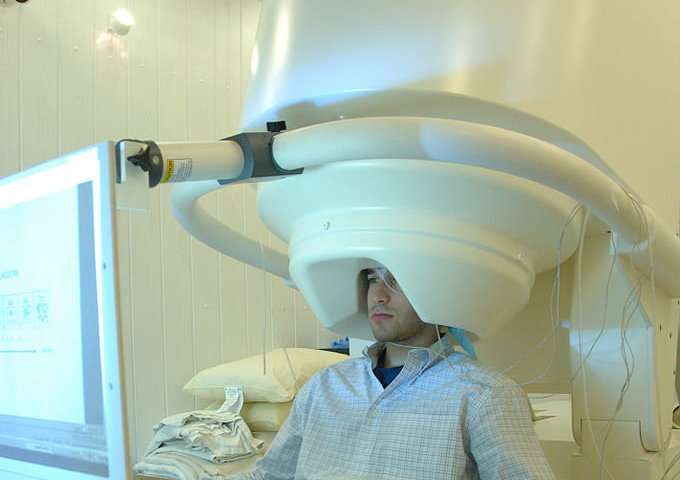New brain research suggests that schizophrenia is an extreme version of a common personality type

Researchers have found that the signals in people's brains differ depending on a particular aspect of an individual's personality, termed Schizotypy, a discovery that could improve the way schizophrenia is characterised and treated.
The study, "Attenuated post-movement beta rebound associated with schizotypal features in healthy people," published in Schizophrenia Bulletin, was led by the University of Nottingham and the findings suggest that many mental illnesses may be thought of as extreme variants of a normal personality.
Shared thinking patterns
People's personalities vary in many ways and this variation can be measured using questionnaires. Similarly to how some people are more or less outgoing, a healthy individual with a highly schizotypal personality shares more 'thinking patterns' with a person diagnosed with schizophrenia. This bridge between normal personality and mental illness provided a way for the researchers to understand if the brains of patients with schizophrenia are totally distinct from healthy volunteers, or whether they overlap.
The researchers used a technique called Magnetoencephalography (MEG) to measure volunteer's brain waves while they moved their index finger. In 2016 a Nottingham led-team using the same technique found the brain response to this finger movement was reduced in patients with schizophrenia. The more severe the patient's symptoms, the more the response was reduced. In this latest work, a similar relationship was found but in healthy volunteers. Volunteers with a personality more similar to that of a person with schizophrenia, or highly schizotypal, had a reduced brain response as compared to those with less schizophrenia-like personalities.
Diagnosis and planning
Although more research is required, the researchers hope that in the future this or a similar technique will be used to help in the diagnosis and planning of treatment for people with mental health problems. Peter Liddle, professor of psychiatry at the University's Institute of Mental Health, and the study's senior author commented: "This finding should help to dispel the idea that people with serious mental problems are categorically different from so-called "normal" people. Even more importantly, it tells us that the same kinds of strategies that help any of us deal with the challenges we face in everyday life could also be helpful in dealing with the more demanding challenges faced by people with serious illness. Nonetheless it would be a mistake to under-estimate those challenges."
The research, carried out at the University of Nottingham's Sir Peter Mansfield Imaging Centre and Cardiff University, was part of a much larger project aiming to provide scientists with a detailed picture of healthy brain function when using MEG (see www.meguk.ac.uk). MEG is relatively rare technique, with less than 150 machines across the world.
Dr. Benjamin Hunt, lead author of this research and who now works at the Hospital for Sick Children in Toronto, Canada, commented: "MEG is an incredibly powerful technique to look at how the brain functions. Although this work is extremely exciting for the study of psychosis, it builds on other exciting work demonstrating that MEG can be useful for mental health diagnoses. I also hope that by showing there to be a continuous brain link between healthy people and people with schizophrenia, this work will help to remove the stigma associated with mental illness."
More information: Benjamin A E Hunt et al. Attenuated Post-Movement Beta Rebound Associated With Schizotypal Features in Healthy People, Schizophrenia Bulletin (2018). DOI: 10.1093/schbul/sby117


















